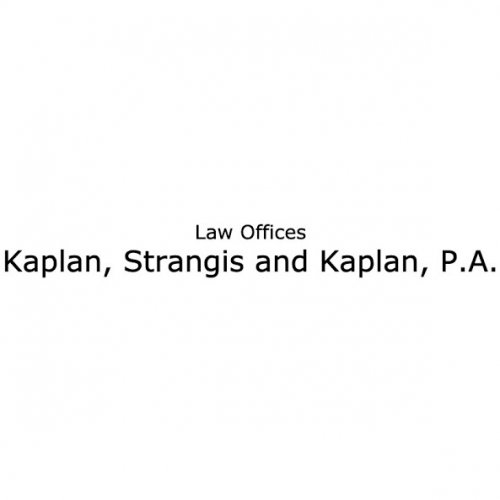Best Equity Capital Markets Lawyers in Minnesota
Share your needs with us, get contacted by law firms.
Free. Takes 2 min.
Or refine your search by selecting a city:
List of the best lawyers in Minnesota, United States
About Equity Capital Markets Law in Minnesota, United States
Equity Capital Markets (ECM) refers to the area of finance and law related to the raising of capital through the issuance and trading of equity shares in public and private markets. In Minnesota, as in the rest of the United States, ECM plays a critical role for businesses seeking to grow by attracting investments from individuals, institutions, and other entities. Equity Capital Markets law encompasses the legal frameworks and regulations governing activities such as Initial Public Offerings (IPOs), secondary offerings, private placements, and compliance with securities laws at both state and federal levels. Legal professionals in this field help ensure that companies follow the appropriate protocols to raise capital while protecting investors and maintaining market integrity.
Why You May Need a Lawyer
The complex nature of raising capital through equity markets can expose both businesses and investors to significant risks and regulatory requirements. Situations where you may need a lawyer include:
- Planning an Initial Public Offering (IPO) or other public offering of shares
- Complying with state and federal securities regulations when raising equity capital
- Negotiating and structuring private placements or venture capital investments
- Addressing disclosure obligations and drafting prospectuses or offering memoranda
- Responding to inquiries or actions from regulatory authorities, such as the Securities and Exchange Commission (SEC) or the Minnesota Department of Commerce
- Resolving disputes related to shareholder rights or alleged securities fraud
- Structuring employee equity compensation plans
Seeking legal counsel ensures that all parties are protected, transactions are structured lawfully, and procedural errors are avoided, which can be costly or damaging to reputation.
Local Laws Overview
In Minnesota, Equity Capital Markets activities are governed by both federal securities laws and state-specific regulations. The Minnesota Department of Commerce is responsible for enforcing state laws relating to securities offerings and broker-dealer registrations. Key aspects of local laws include:
- Minnesota Securities Act: This act regulates the offer and sale of securities in Minnesota. Issuers may need to register securities offerings or qualify for an exemption under state law.
- Blue Sky Laws: State-specific rules designed to protect investors from fraud. Minnesota requires various disclosures and can impose advertising restrictions.
- Coordination with Federal Laws: Most equity offerings must comply with the Securities Act of 1933 and Securities Exchange Act of 1934 at the federal level. Offerings may also rely on exemptions such as Regulation D; however, state notice filings and fees may still apply.
- Registration Requirements: Broker-dealers and investment advisers who operate in Minnesota or offer securities to Minnesota residents must register locally in addition to national requirements.
- Reporting and Disclosure: Issuers must meet ongoing disclosure obligations to shareholders and regulators regarding material developments within the company.
It is essential to understand both state and federal requirements, as failing to comply can result in severe penalties, rescission rights for investors, or other enforcement actions.
Frequently Asked Questions
What is an Initial Public Offering (IPO)?
An IPO is the process where a private company offers shares to the public for the first time, often listing on a stock exchange. This allows the company to raise capital from a broad investor base but also requires strict compliance with securities laws.
Do I need to register my securities offering in Minnesota?
Most securities offerings in Minnesota must be registered with the Minnesota Department of Commerce unless an exemption applies, such as private placements under Regulation D. Always consult with a lawyer to determine the appropriate process.
What are Blue Sky Laws?
Blue Sky Laws are state regulations intended to protect investors from fraud by requiring sellers of new issues to register their offerings and disclose relevant details. Minnesota enforces its own Blue Sky Laws in addition to federal laws.
Can I use a federal exemption like Regulation D in Minnesota?
Yes, but you must often file a notice and pay a fee with the Minnesota Department of Commerce even if you qualify for a federal exemption. An attorney can help ensure all filings are correctly made.
What is a private placement?
A private placement is a sale of securities to a limited number of investors without a public offering. These transactions still require careful legal planning and compliance with both state and federal securities laws.
Who enforces securities laws in Minnesota?
The Minnesota Department of Commerce is the primary state agency enforcing securities laws. Federal regulators, such as the Securities and Exchange Commission, also have jurisdiction over many offerings.
What are the risks of non-compliance with ECM laws?
Violations can result in civil and criminal penalties, rescission rights for investors, reputational damage, and potential loss of the capital raised.
What disclosures are typically required for an equity offering?
Issuers must provide investors with detailed, accurate information about the company’s financial condition, management, risks, and the terms of the offering. The required disclosures depend on the type of offering and applicable exemptions.
Is crowdfunding legal for equity offerings in Minnesota?
Yes, equity crowdfunding is permitted under certain conditions and regulations. Both federal law (such as Regulation Crowdfunding) and state-specific rules apply.
How can a lawyer help with an employee stock option plan?
A lawyer can ensure the plan complies with securities laws, draft appropriate documents, explain tax implications, and help avoid unintended legal or regulatory issues.
Additional Resources
If you are seeking more information about Equity Capital Markets in Minnesota, you may find the following resources useful:
- Minnesota Department of Commerce - Securities Division: Oversees state-level securities regulation and compliance
- U.S. Securities and Exchange Commission (SEC): Regulates federal securities markets and provides educational materials
- Financial Industry Regulatory Authority (FINRA): Provides oversight of brokerage firms and investment professionals
- Minnesota State Bar Association - Business Law Section: Offers informational resources and lawyer referrals
- Small Business Administration - Minnesota District Office: Supports new businesses with compliance and funding advice
Next Steps
If you require legal assistance in Equity Capital Markets in Minnesota, consider the following steps:
- Gather all relevant information about your proposed transaction or issue, including business documents, financial data, and any correspondence with potential investors
- Consult with a qualified attorney experienced in ECM and securities law in Minnesota
- Ensure you fully understand your obligations and timelines for regulatory filings and disclosures
- Work closely with your legal counsel to prepare all required documents and meet all regulatory requirements
- Monitor for any updates in local or federal laws that may affect your offering or ongoing obligations
Legal compliance is critical to the success of capital raising efforts and the protection of all interested parties. A specialized ECM attorney can provide tailored guidance and help you navigate this complex area of law with confidence.
Lawzana helps you find the best lawyers and law firms in Minnesota through a curated and pre-screened list of qualified legal professionals. Our platform offers rankings and detailed profiles of attorneys and law firms, allowing you to compare based on practice areas, including Equity Capital Markets, experience, and client feedback.
Each profile includes a description of the firm's areas of practice, client reviews, team members and partners, year of establishment, spoken languages, office locations, contact information, social media presence, and any published articles or resources. Most firms on our platform speak English and are experienced in both local and international legal matters.
Get a quote from top-rated law firms in Minnesota, United States — quickly, securely, and without unnecessary hassle.
Disclaimer:
The information provided on this page is for general informational purposes only and does not constitute legal advice. While we strive to ensure the accuracy and relevance of the content, legal information may change over time, and interpretations of the law can vary. You should always consult with a qualified legal professional for advice specific to your situation.
We disclaim all liability for actions taken or not taken based on the content of this page. If you believe any information is incorrect or outdated, please contact us, and we will review and update it where appropriate.
Browse equity capital markets law firms by city in Minnesota
Refine your search by selecting a city.









